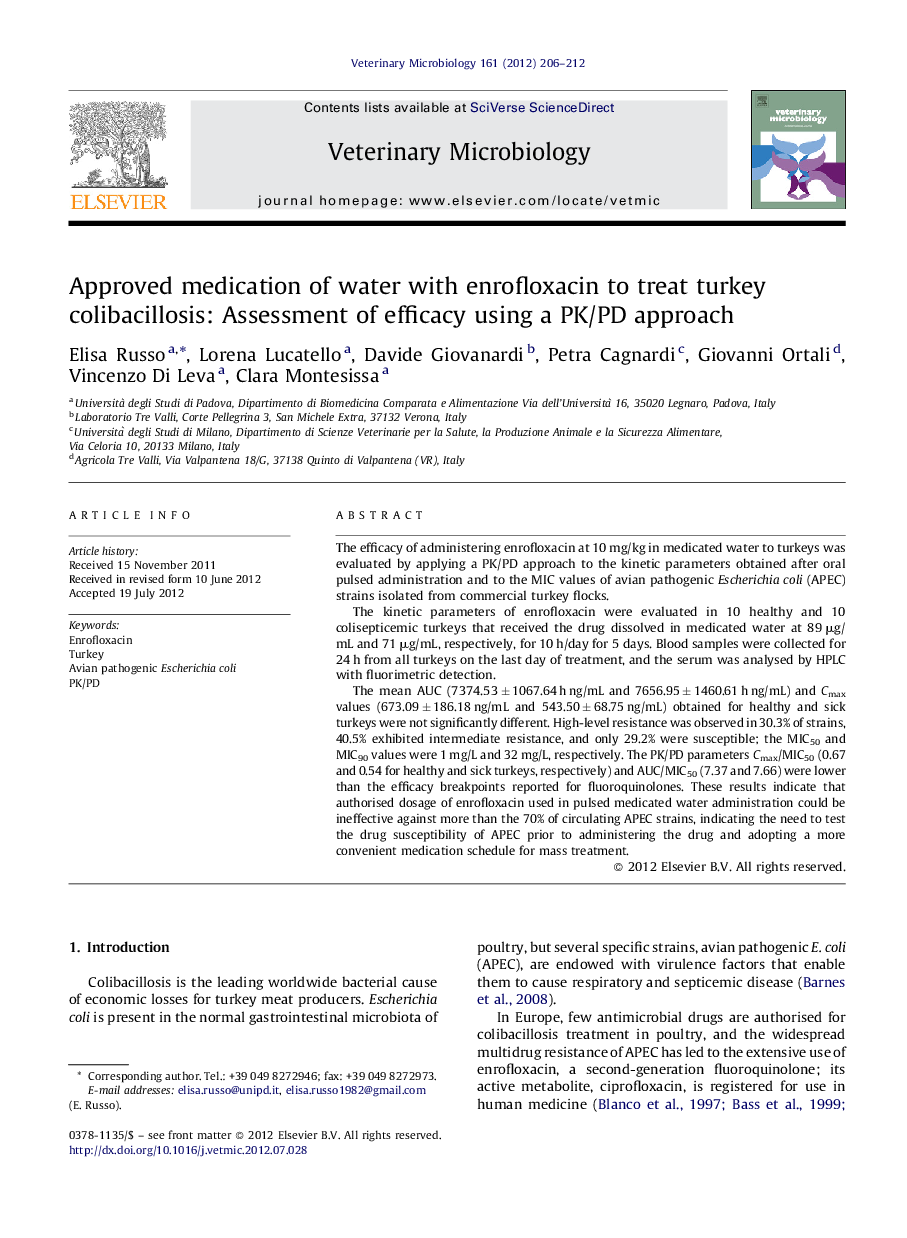| Article ID | Journal | Published Year | Pages | File Type |
|---|---|---|---|---|
| 2466997 | Veterinary Microbiology | 2012 | 7 Pages |
The efficacy of administering enrofloxacin at 10 mg/kg in medicated water to turkeys was evaluated by applying a PK/PD approach to the kinetic parameters obtained after oral pulsed administration and to the MIC values of avian pathogenic Escherichia coli (APEC) strains isolated from commercial turkey flocks.The kinetic parameters of enrofloxacin were evaluated in 10 healthy and 10 colisepticemic turkeys that received the drug dissolved in medicated water at 89 μg/mL and 71 μg/mL, respectively, for 10 h/day for 5 days. Blood samples were collected for 24 h from all turkeys on the last day of treatment, and the serum was analysed by HPLC with fluorimetric detection.The mean AUC (7374.53 ± 1067.64 h ng/mL and 7656.95 ± 1460.61 h ng/mL) and Cmax values (673.09 ± 186.18 ng/mL and 543.50 ± 68.75 ng/mL) obtained for healthy and sick turkeys were not significantly different. High-level resistance was observed in 30.3% of strains, 40.5% exhibited intermediate resistance, and only 29.2% were susceptible; the MIC50 and MIC90 values were 1 mg/L and 32 mg/L, respectively. The PK/PD parameters Cmax/MIC50 (0.67 and 0.54 for healthy and sick turkeys, respectively) and AUC/MIC50 (7.37 and 7.66) were lower than the efficacy breakpoints reported for fluoroquinolones. These results indicate that authorised dosage of enrofloxacin used in pulsed medicated water administration could be ineffective against more than the 70% of circulating APEC strains, indicating the need to test the drug susceptibility of APEC prior to administering the drug and adopting a more convenient medication schedule for mass treatment.
